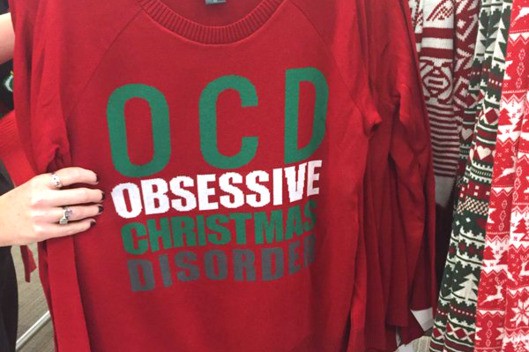Retail giant Target has found itself at the center of a heated debate after selling T-shirts with a design that some customers deemed offensive.
Reign Murphy, a frequent Target shopper, took to Twitter to express her dissatisfaction with the store’s decision to sell shirts emblazoned with the phrase “OCD obsessive-compulsive disorder.” Murphy argued that the message trivialized the serious psychological disorder affecting approximately 2.2 million Americans.
Murphy’s post sparked a wave of support from individuals who shared their own struggles with OCD, highlighting the condition’s debilitating impact on daily life. However, others with OCD voiced a different perspective, accepting the message as harmless humor without malicious intent.

Target’s representative, Jessica Carlson, issued a public apology to those offended but maintained that the product would remain available, citing no intention to harm or offend.
This incident raises important questions about brand responsibility, consumer sensitivity, and the nuances of humor. While some brands intentionally push boundaries, others may unintentionally offend. The controversy serves as a reminder to consider multiple perspectives before taking to social media.
As the debate continues, it’s clear that the intersection of commerce and social awareness requires careful navigation. Brands must balance creative expression with respect for diverse audiences.

Consumers, too, must weigh the intent behind potentially provocative products before jumping to conclusions.
In an era where social media amplifies every voice, it’s crucial to engage in thoughtful dialogue, avoiding hasty judgments and seeking understanding. By doing so, we can foster a more empathetic and inclusive environment for all.
The controversy surrounding Target’s T-shirt design serves as a catalyst for meaningful discussion, encouraging brands and consumers alike to tread thoughtfully and considerately in the complex landscape of social responsibility.


